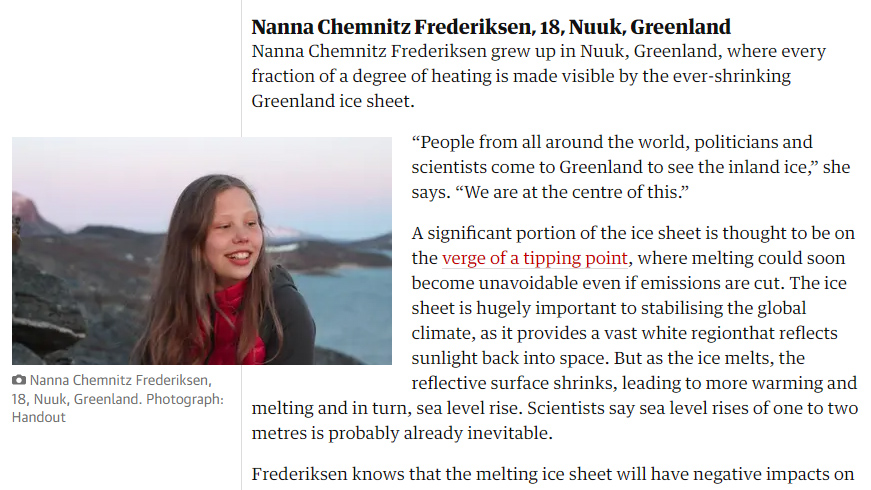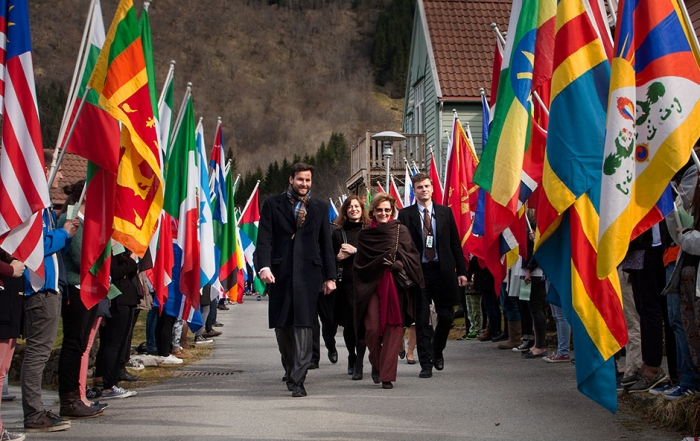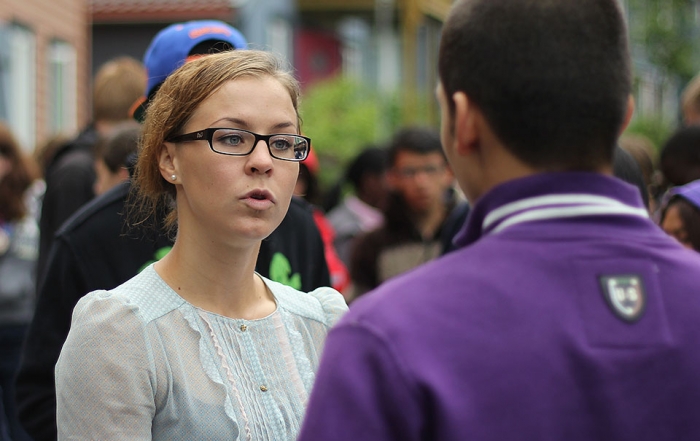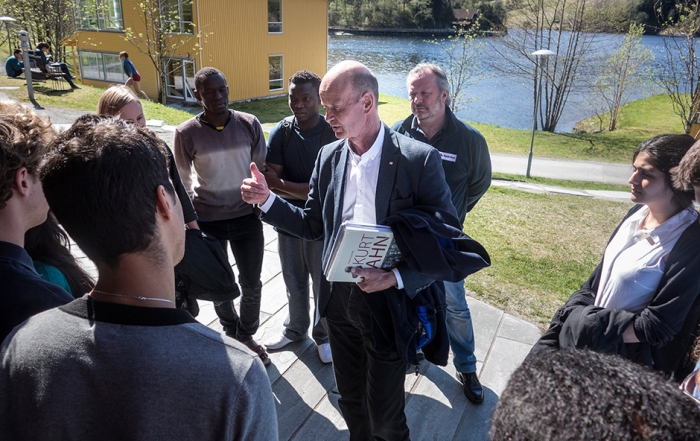“People from all around the world, politicians and scientists come to Greenland to see the inland ice,” she says. “We are at the centre of this.”
A significant portion of the ice sheet is thought to be on the verge of a tipping point, where melting could soon become unavoidable even if emissions are cut. The ice sheet is hugely important to stabilizing the global climate, as it provides a vast white region that reflects sunlight back into space. But as the ice melts, the reflective surface shrinks, leading to more warming and melting and in turn, sea level rise. Scientists say sea level rises of one to two metres is probably already inevitable.
Frederiksen knows that the melting ice sheet will have negative impacts on communities across Greenland, especially in northern settlements such as Qaanaaq where permafrost melting is destabilizing homes and roads and impacting how fishers and hunters operate.
But her real concern lies on the impact it will have globally. “I am not so scared of what the effects of the melting of ice in Greenland will be,” Frederiksen says, “It scares me what effect it can have for the rest of the world.”
Latest News
A Royal visit
Her Majesty Queen Sonja will visit UWC Red Cross Nordic on September 21st - 22nd for the celebration of the 20th anniversary of the College and our work to use education as a uniting force. [...]
Congratulations
Congratulations to Susanne Gabrielsen, UWC Red Cross Nordic alumna(Norway NC), for being awarded her doctorate by the University of Minnesota following the submission of her theses: ‘Longitudinal Intergroup Contact Model Comparison at the Multicultural High School [...]
Sven Mollekleiv
On behalf of UWC Red Cross Nordic, congratulations to Sven Mollekleiv on the receipt of the award of the Order of St Olaf from His Majesty The King for his commitment to humanitarian action – [...]




